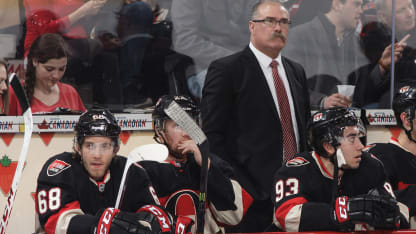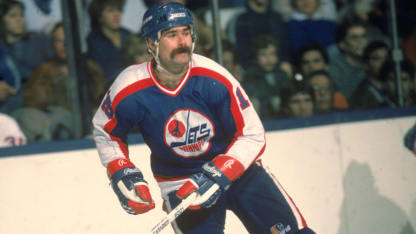Every day as the deadline approaches, your organization is asking the hard questions. What do we need? Who are we willing to give up? You discuss these things as part of the coaching staff, then you take it upstairs to the general manager, the assistant GM and all the pro scouts. There's a lot of excitement, a lot of tension, a lot of energy in the room. The recurring theme: What do we need to get us over the top?
Of course, if you are at the other end of the barometer, as a coach you're always in it to win and make the playoffs. All of a sudden, you can see the standings and you look at the math and you know the history and you ask yourself, "Wow, what are we going to do?"
Are you a seller? Are you becoming a team that will give opportunity to young players? Are you going to trade some of the veteran players that are important to you? All of this brings a different set of emotions.
Here's the tough part: Any conversation you have with a player informing him he has been traded is a difficult one, believe me. Try explaining to a player in a deadline situation what could be better for him and for the team. It can be a very trying experience.
I've been on both sides -- a buyer and a seller -- and each brings moments of excitement and intensity. But, of course, you want to be the guy who's trying to win a Stanley Cup as opposed to the guy who's giving up players.
Now let's look at it from a player's perspective.
Guys might not read and not watch, although that's tough in an era of social media and smartphones. But they all have family and friends, and they all hear things.
A player always knows what's being said and what's being bandied about concerning him. You're only human if that doesn't affect you. I've gone through it myself; you have a wife and young kids at home. You're settled in with your life, and suddenly you have no control of your own situation.
Hearing your name bandied about is not a comfortable place to be. It's kind of exciting other people are interested in you, but most people are pleased in the situations they're in.




















